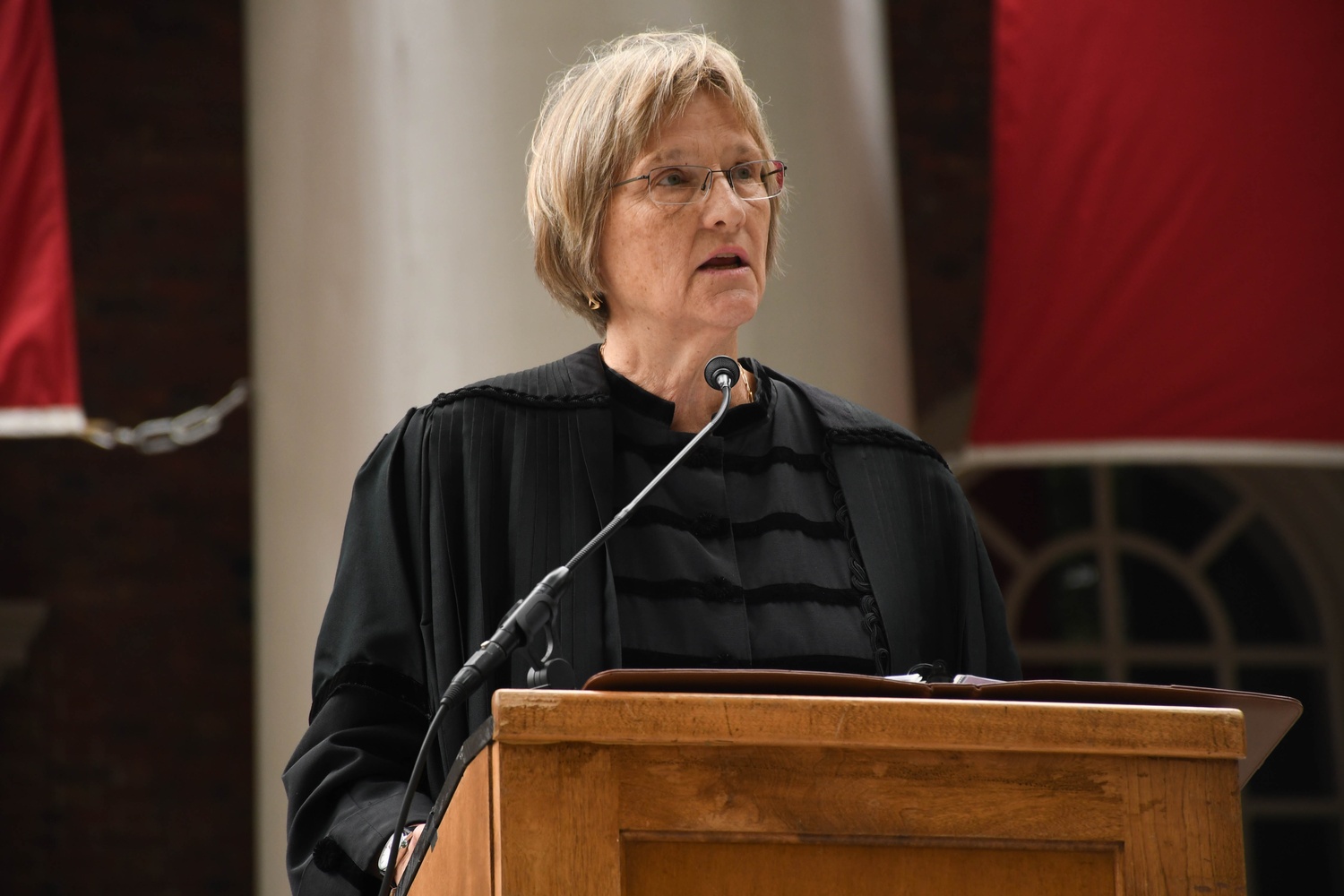
News
Summers Will Not Finish Semester of Teaching as Harvard Investigates Epstein Ties

News
Harvard College Students Report Favoring Divestment from Israel in HUA Survey

News
‘He Should Resign’: Harvard Undergrads Take Hard Line Against Summers Over Epstein Scandal

News
Harvard To Launch New Investigation Into Epstein’s Ties to Summers, Other University Affiliates

News
Harvard Students To Vote on Divestment From Israel in Inaugural HUA Election Survey
Faust Says Sanctions Decision Not a Threat to Presidential Power

University President Drew G. Faust rebutted criticisms that the Harvard Corporation’s decision to uphold a controversial College policy on social groups will curtail her successor’s autonomy in an interview Friday.
Last Tuesday, the Corporation—the University’s highest governing body—voted to keep the College’s policy in place and mandated a review of its implementation in five years time.
The vote seemed to put to bed months of uncertainty over the fate of the penalties, which were first announced in May 2016. Some said the Corporation’s vote strongly limits the next president’s authority to revise the sanctions if they wish and marks a departure from the Corporation’s traditionally hands-off approach to undergraduate life.
In an interview last Friday, though, Faust argued the Corporation’s intervention will secure the policy—which, starting with the current freshman class, bars members of single-gender final clubs and Greek organizations from leadership positions in recognized student groups and receiving endorsements for prestigious fellowships. Faust said the Corporation’s intent was to allow her successor to “focus on other matters” during the first few years of their tenure.
“I think this does my successor a big favor to have this stabilized for a period of time,” said Faust, who is set to step down from her role in June. “The thinking was we didn’t want a new president having to face dealing with this whole issue all over again in the first weeks or months or year or two of office.”
Faust said the Corporation, which typically “defers very explicitly on academic matters to faculty,” intervened because it believed the policy had implications for “the basic character of the College.” Further, she argued the body’s role in the final decision will establish “continuity” for the next president. Faust added that the Corporation’s 12 members voted unanimously.
“As it seemed inevitable that this would be very close to the end of my term, we all thought it was important that it not just be seen as something that was coming from me, that you could wait out or hope to disappear,” Faust said. “But rather it be a judgement that was shared by the Corporation as a whole in order to establish continuity and make it really the decision that it is rather than just a kind of last comment from a departing president.”
Faust hinted at the possibility that the next president could revise the sanctions within five years if they believe it does not address the policy’s aims.
“There’s time to choose a different solution in the future if this one doesn’t address the variety of issues,” Faust said. “This one gives students choice about what their priorities are. It gives the organizations choice and seems to balance the different imperatives that we’ve been trying to reconcile.”
The Corporation may not, however, be the final word on the policy. A proposed amendment in Republican-led legislation to reauthorize the Higher Education Act would ban schools that have “a policy allowing for the official recognition of single-sex student organizations” from penalizing members of those groups. It is unclear whether the language would apply to Harvard, which does not formally recognize the College’s final clubs and Greek organizations.
—Staff writer Brandon J. Dixon can be reached at brandon.dixon@thecrimson.com. Follow him on Twitter @BrandonJoDixon.
Want to keep up with breaking news? Subscribe to our email newsletter.
